

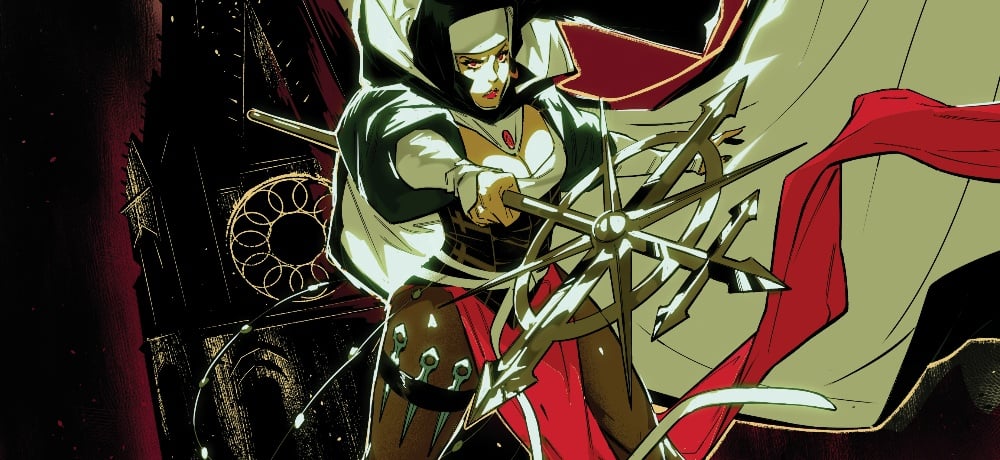
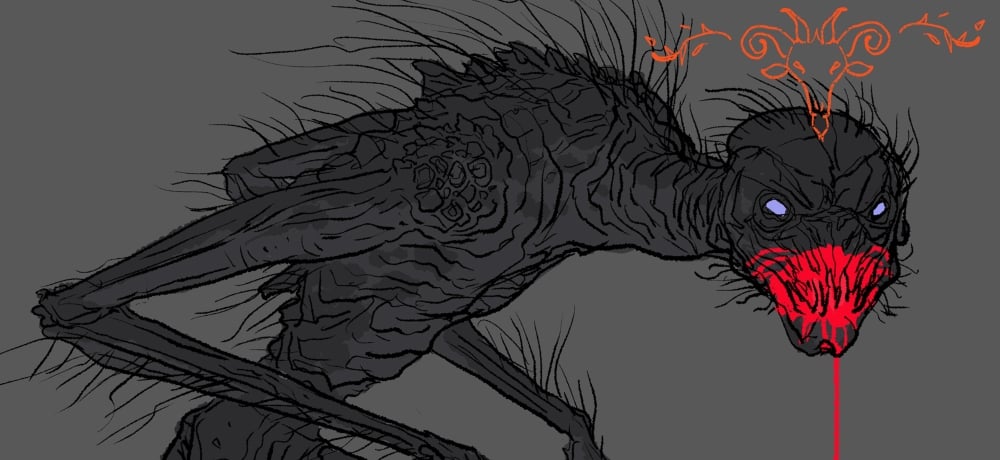
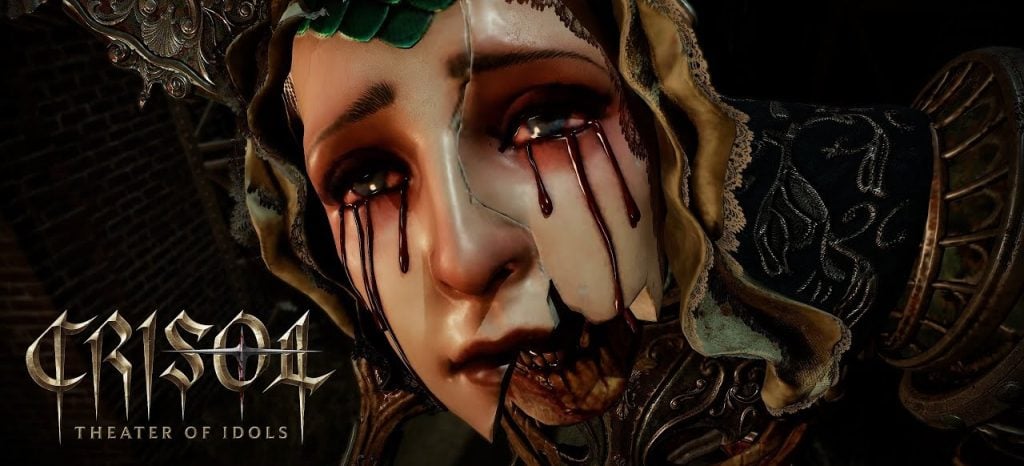
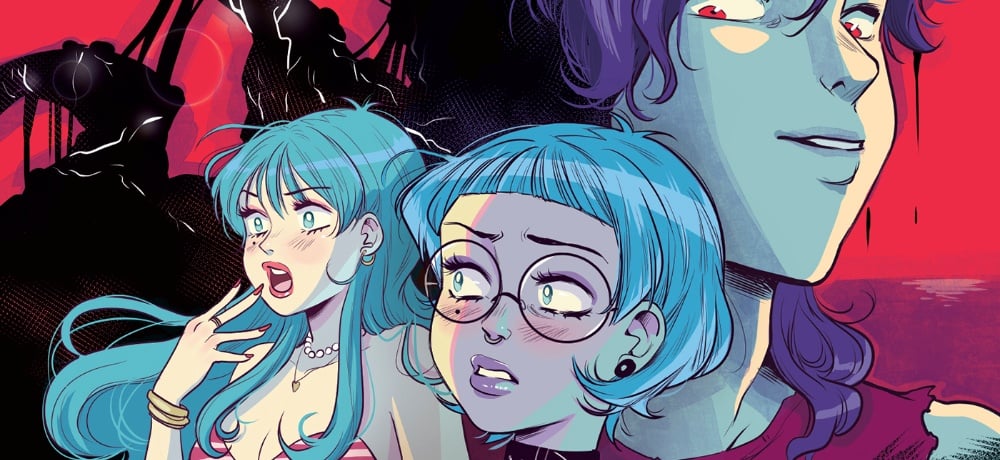
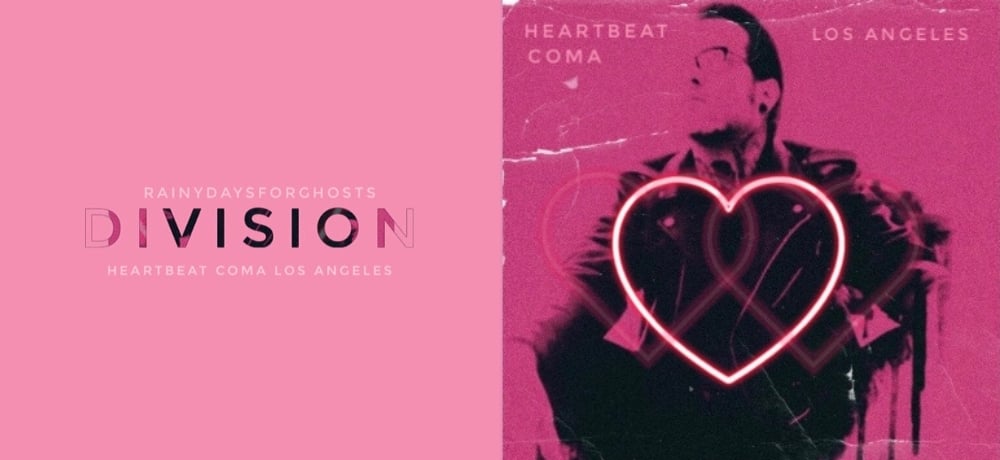
Jerry Smith has been a fixture in the horror world for years now as a writer for numerous sites as well as the most passionate supporter I know of Halloween 4. But there’s more to Smith than just his words and his love for horror movies - he’s also a talented musician who launched a new musical endeavor in 2020 called rainydaysforghosts. Smith is about to release a brand new EP this Saturday, called Division (which you can pre-order HERE), making it the perfect opportunity to catch up with the multi-hyphenate to talk about all things horror, survival, the healing power of music, and Smith’s favorite scores.
Can you start off by talking about your love for horror and your love for music, and where that all stems from initially?
Jerry Smith: (T/W:) I was a child of divorce and would fly back and forth between my father and my mother. While spending summers with my mother, I was badly abused by my stepfather for two years. It left me a fracture of who I was prior to those awful experiences. To get me out of the house and out of my then stepfather’s targets, my mother would give me money to stay in the next-door theater from open to close. Every single day of the summer. So, one day, I walked to the theater to catch whatever matinee was playing and it was Halloween 4, a film I had zero idea about. I was immediately in love with that film and searched high and low for any other films in that series, as well as the horror genre in general. It became my savior in so many ways; a lot of people tend to say, “Horror saved my life,” but it really did and that statement could not be more accurate. I learned to endure from the Jamie Lloyds, the Laurie Strodes, the Andy Barclays, and especially the Sally Hardestys in horror. At night, when I’d go home, I knew a monster would be waiting at my door when everybody else fell asleep, so during those moments of experiences in genre films, they were my escape.
Discovering Fangoria magazine when I was nine years old was equally important. It was the first time I didn’t feel like a literal alien. I discovered the existence of other monster kids through that discovery.
Music has always been equally as profound to me as horror and film are. From an early age, my grandmother would nurture my love for music and though she didn’t understand my obsession with bands like Concrete Blonde, Bad Religion, and Slayer, she never judged my musical loves because she knew the scared little boy in front of her came alive when he put on Concrete Blonde’s “Tomorrow, Wendy.” I was also very obsessed with film scores from an early age, mostly due to my lifelong love for all things John Carpenter. Watching films like Starman, The Fog, and many others as a kid solidified that obsession and Carpenter’s scores latched onto me just as much as any of his visual abilities. I was the kid who pocketed my lunch money for a week and used it to buy John Williams’ score for Jurassic Park instead.
There’s something beautiful and life changing about sitting down, putting on an instrumental album of score work, and getting lost in those cues. I don’t remember my first kiss, never cared about being on the honor roll every year in school, but I remember the first time I heard the WEIRD as hell Alan Howarth score for Halloween 5, or Cliff Martinez’s amazing work on The Neon Demon.
At what point in your life did you realize that you wanted to pursue both writing and music at a professional level, and how did you make that leap in both worlds (if that makes sense)?
Jerry Smith: I’ve been writing about film professionally for a decade this year and it was something that I honestly didn’t think would ever be a possibility. It came about when I became acquaintances with the creator of a site I frequently read and asked them about any advice they could give someone who wanted an outlet to write about horror. I was then asked to just join their site and over time I went from writing to being the editor-in-chief of that site for a few years, and eventually moving to Fangoria, Delirium Magazine, and a variety of magazines and sites. It’s something I value very much and writing about what horror means to me has pulled me out of the trenches of mental illness and trauma more than most other things have.
While I’ve always been musically inclined, most of my background was from playing guitar in various punk rock or hardcore bands around my local scene. While I enjoyed those experiences, my tastes were always more electronic or instrumental based, more than your typical “songs,” which to be honest, zero punk rock bands want strings and synths involved. After jumping back into music projects, I eventually made the leap into scoring other filmmakers’ work, leading to the past two years and having scored almost a dozen short films for directors. I think horror and filmmaking is so instrumental in allowing the audience to FEEL something, whether it be the fear of mortality, how we react to that fear and realization that we all die, and so on, that music adds to that emotion and helps the audience address those thoughts via the mood they’re going through.
Let’s talk about rainydaysforghosts, which is something you launched in the last year. Can you talk about the genesis for this new musical effort and what your creative mantra is that drives the direction of the music that you create for rainydaysforghosts?
Jerry Smith: Rainydaysforghosts is easily the most important project I’ve ever created, for a variety of reasons. It was born from the realization that I was (and essentially AM) not okay. My wife and I lost a baby in May of 2019 and to say it wrecked me would be an understatement. I alienated most people around that time, didn’t get help, broke sobriety because of how sad and miserable I was because of the loss, that it really destroyed a LOT in my life. A little over a year ago, March of 2020, I was going through a heavy bout with depression and unfortunately, suicidal ideation, and felt quite hopeless at the time. It was pouring rain outside and I found myself thinking of the child we had lost, who we had already named Juniper Ghost. The name was born out of how sad it felt to be staring at the rain, thinking of the daughter that was never strong enough to make it into this world. It made me realize that if I didn’t do something, I would lose my fight. I was never very good at traditional therapy. I think it’s such a great thing for so many people, but for me, it’s hard to talk to people, so I needed to say what I was feeling, so I started writing music that was 100 percent based on the pain and despair that I was feeling and that’s what rainydaysforghosts has always been: a complete dissection of the feelings and struggles, mentally, that I’ve gone through.
While some may find the lack of lyrics a negative thing, I think there’s a universal power that goes through soundscape-based art that allows its listener to FEEL something and hopefully that’s what has happened. I’ve recorded and recorded and released a full-length and multiple EPs within the past year and each one has been closer to a concept album of emotions than anything else. It’s very important to me. It’s impossible not to find myself reaching for what made composers like John Carpenter, Cliff Martinez and/or Daniel Hart resonate with me, so my stuff tends to fall somewhere in the middle of all three of those composers, but with (hopefully) my own spin on electronic or ambient-based music.
How different is the creative process for you when you’re working on music versus your writing? Do you have to be in a totally different mindset?
Jerry Smith: Writing is a cerebral thing for me, it’s in my head and I do my best to articulate what a film means to me in a personal way. I’ve never been good at general reviews or articles, I’m known for blood on the page essays and pieces that tend to be more about what a film did for me, as a way to cope, more than “this movie is GREAT!” kind of stuff. So I think the way I write and the way I make music is similar, but the way I do them and the mindset I’m in is quite different. For music, I kind of alienate myself for the duration of composing and recording. Nobody sees me during that time, and to be honest, it tends to take me to some dark places. While a lot of my articles have been VERY personal, I’m able to flip the switch on the past versus the present when writing them. For music, I’m right there reliving a lot and it can be quite painful. I don’t subscribe to the idea that an artist has to be tortured to create, but for rainydaysforghosts, it’s there on front street, good or bad.
You have a new EP called Division that is releasing later this week. What is the inspiration behind the EP, and can you discuss taking a new direction musically for Division as well (based on what you had mentioned in your tweet)?
Jerry Smith: Division is a personal one because, like the title says, it’s a group of cues 100 percent about the breaking of something you just don’t want to be broken. It’s a soul-crushing release for me, but something I’m quite proud of. While everything I do musically for this project is autobiographical, this one is about as on front street as possible. It’s about the feelings that come with knowing that you had the chance to hold onto something and to fix it and due to you not seeking help, you ended up destroying that thing. It’s a different release in a lot of ways. I typically record everything in my house, but for Division, each track was about something very specific, so I decided to record each track at the place each one was about. Los Angeles has always been my sanctuary and having faced the pain that comes with losing something special that you have always associated with that city, I decided to drive into Hollywood and record the entire track in a Los Angeles hotel room, with bringing my gear and other stuff to try to capture that.
It’s the first thing I’ve recorded where each track was created in different places, and also features a real departure with the EP’s bonus track, “Holy Ghost,” which is the first track featuring vocals and less of a score-vibe. It’s purposely put on the EP as a bonus track, because while it doesn’t quite gel with the ambient tone of the rest of it, it’s a crucial part of the story told throughout the EP: knowing you just destroyed what saved you.
I know you’re big into horror scores and soundtracks—what are your five essential horror movie scores?
Jerry Smith: Halloween 4 by Alan Howarth: I adore the hell out of this score. It captures that fall season so well, and I think Howarth deserves more respect for his work on the series.
Prince of Darkness by John Carpenter and Alan Howarth: my second favorite JC film and one of my favorite scores of all time. It’s eerie, moody and hits you HARD.
The Neon Demon by Cliff Martinez: Yes, I consider The Neon Demon to be a horror film and what Martinez is able to do is give his listeners something beautiful and unsettling at the same exact time. Huge fan.
Gretel and Hansel by ROB: I cannot get enough of the score. It’s a staple for me already, I listen to it quite often while writing. Between this and his score for the remake of Maniac, Rob is one to look out for.
Little Nightmares II by Tobias Lilja: This is a newer one, but already an album I am obsessed with. It’s for a horror video game, so technically not a movie, but there’s something both cinematic and horror-heavy about the game and score that it deserves to be on this list. Lilja is a master at creating a mood and pulling you into a world where you honestly just WANT to get out, but can’t. It’s terrifying.